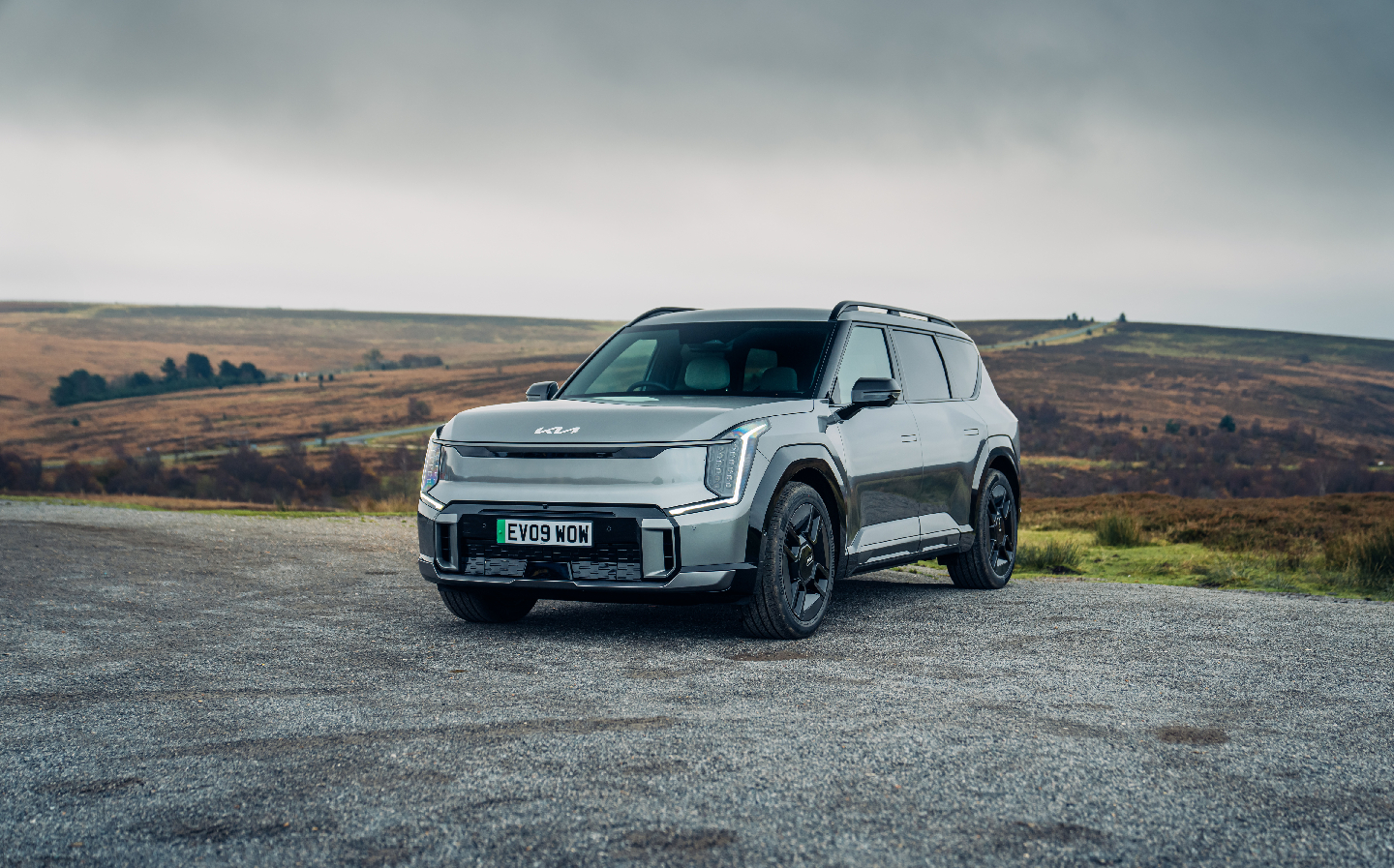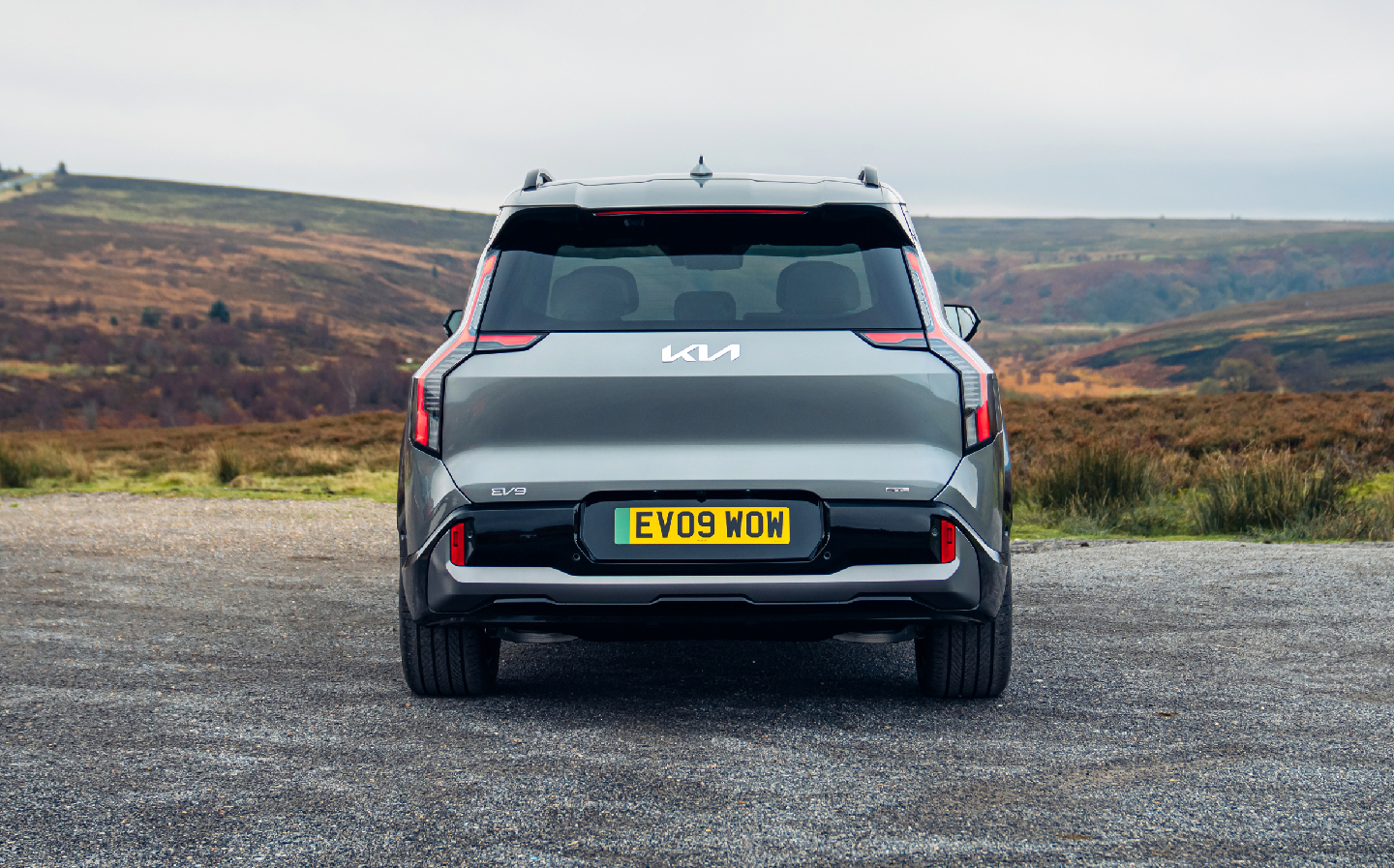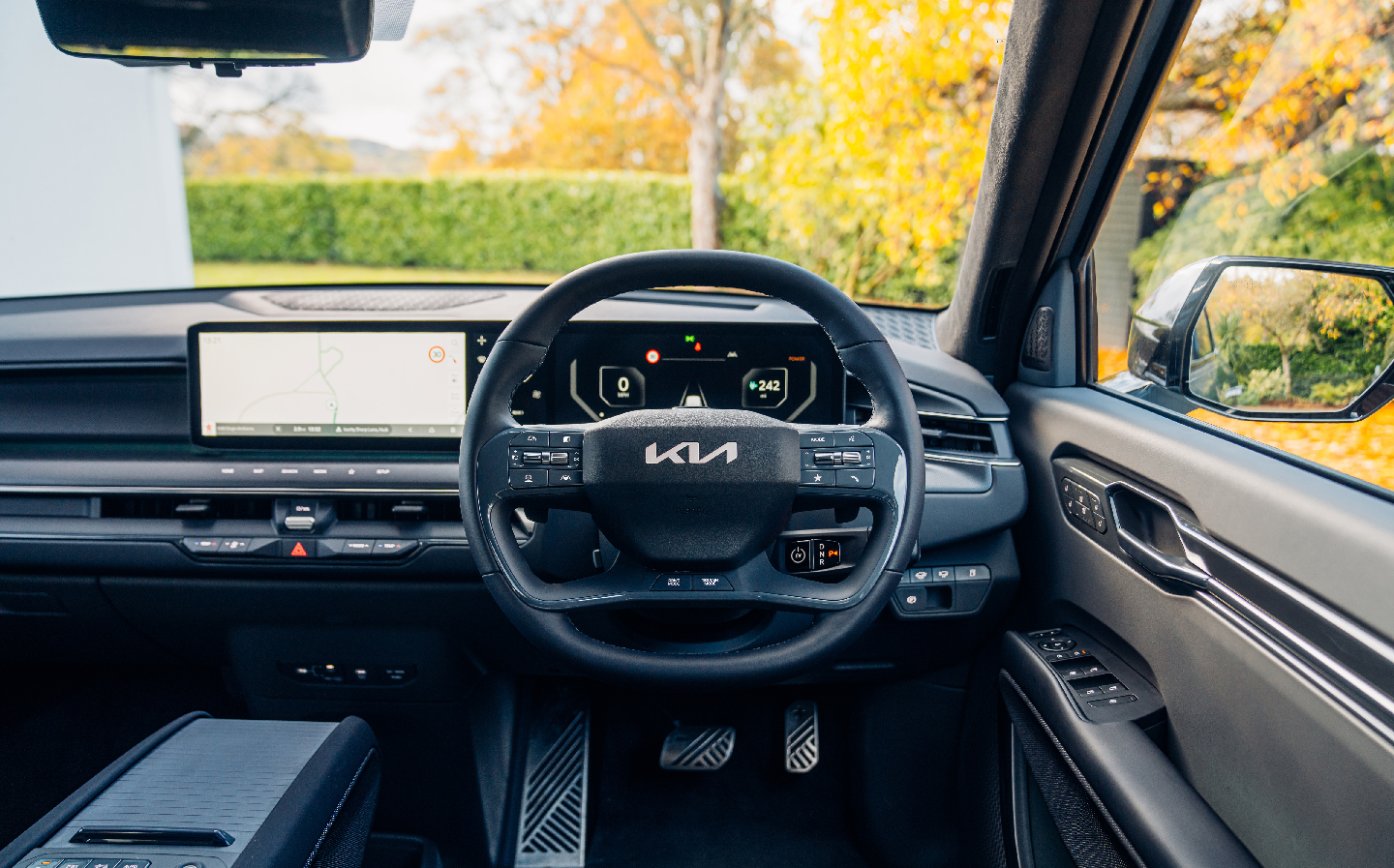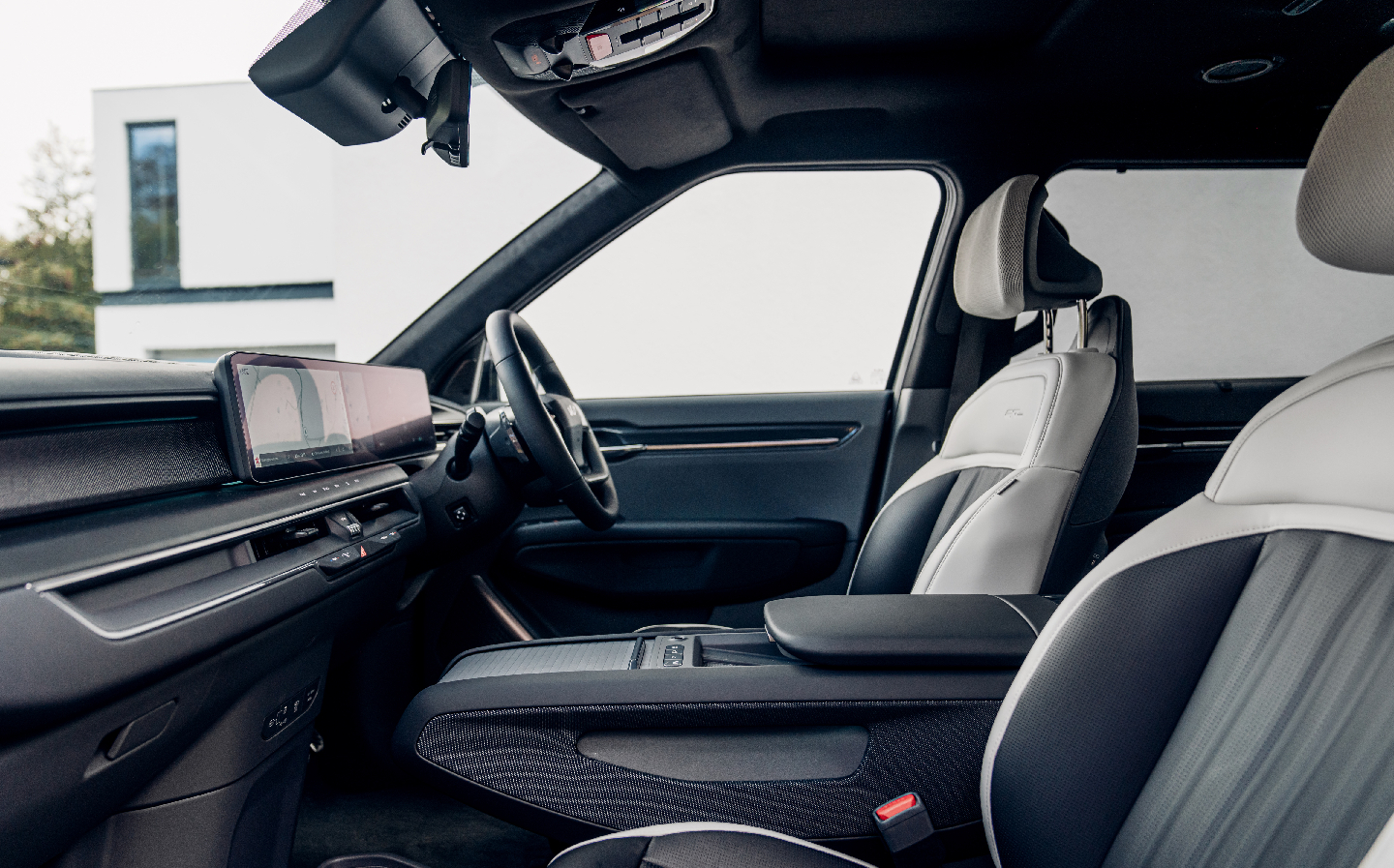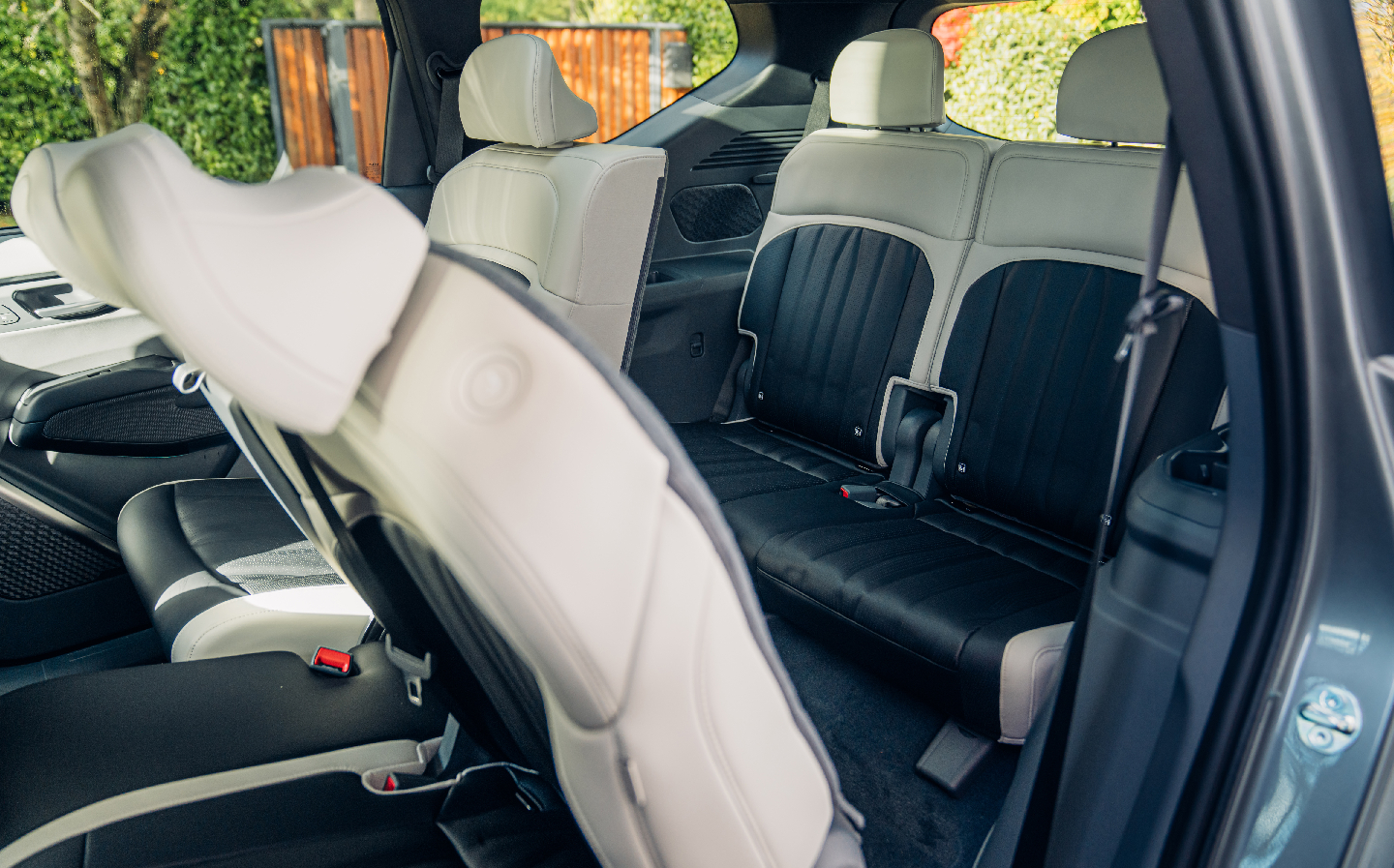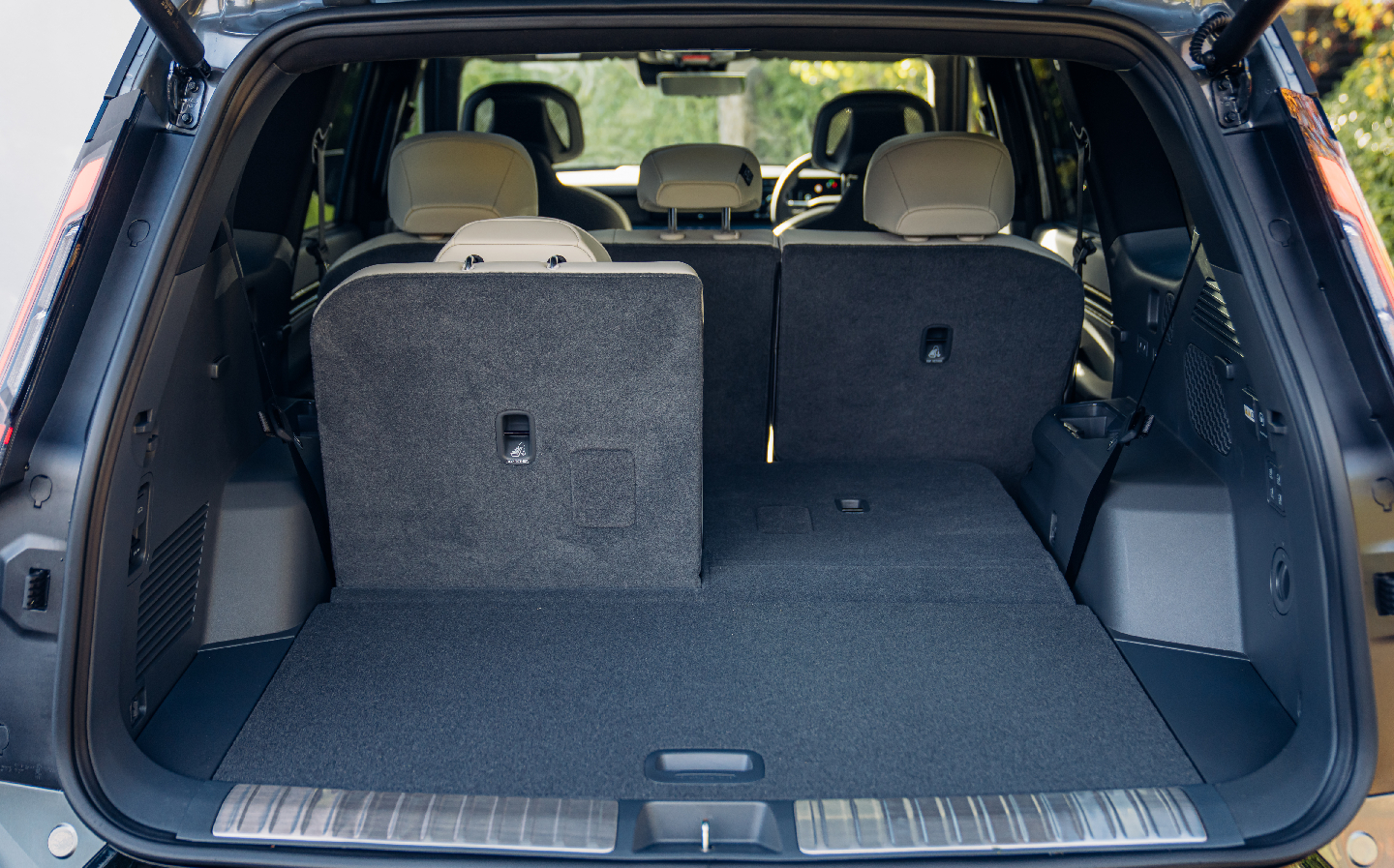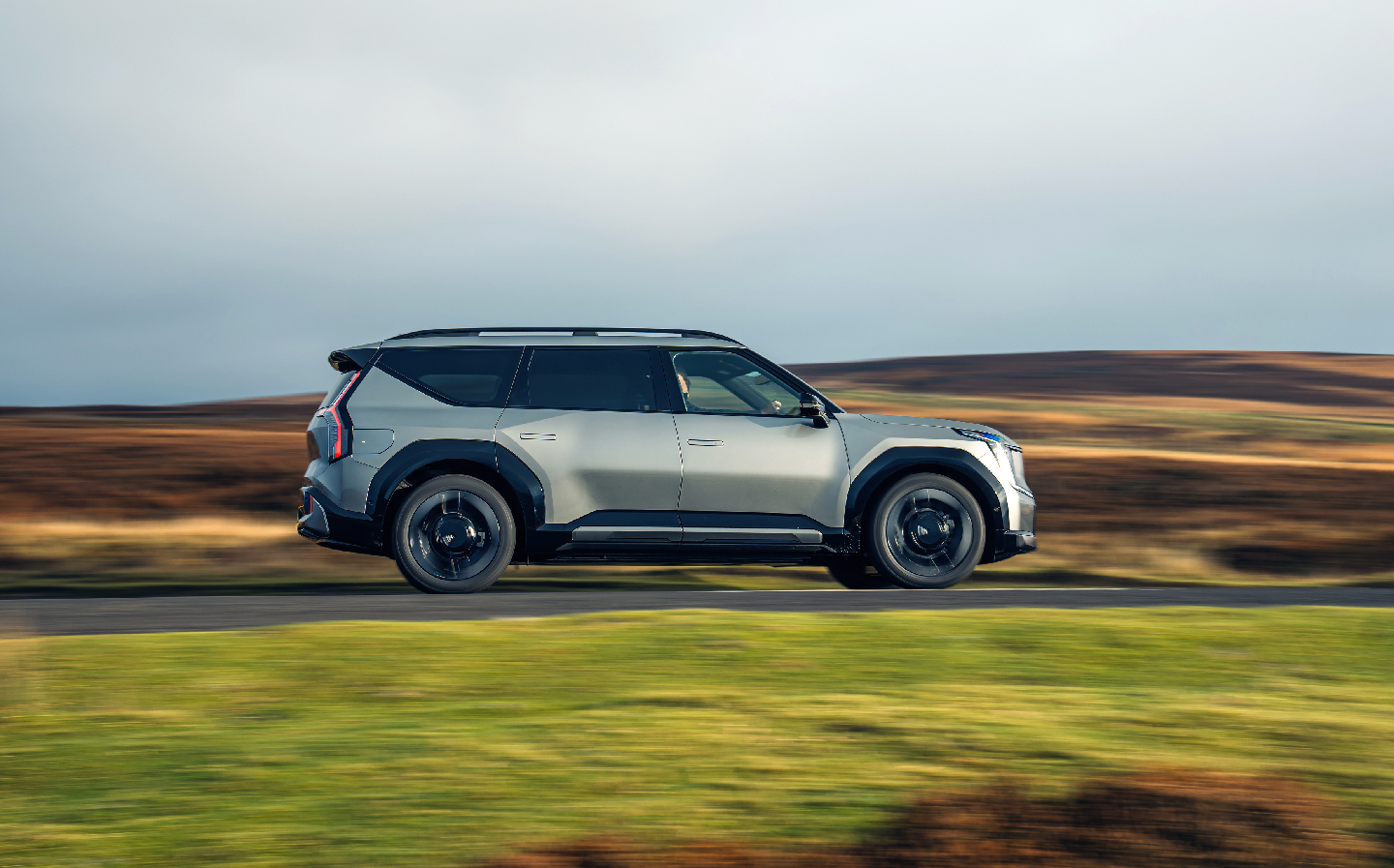Kia EV9 review 2023: Ground-breaking electric seven-seater is in a class of one ... for now
Seven go into nine comfortably
About 13 years ago, when Tesla had only produced an electric version of a Lotus roadster and Nissan was trying to convince us that its new 100-mile Leaf EV hatchback was suitable for most drivers, I thought it’d be fun to commission a satirical article about Hummer producing an electric off-roader. How hilarious, I thought: a huge, hulking electric vehicle with four-wheel drive.
Within hours of it being published I had received a message from a reader saying that, actually, electric motors are ideal for off-roading thanks to their immediate torque (twisting force) and, oh by the way, Hummer had already experimented with electric drivetrains. I pulled the article and soaked all that in. It was the first time that I really understood the potential of electric vehicles, and the direction of travel for the motor industry as a whole.
Fast forward to today and, of course, the UK has mandated new cars have to be pure-electric from 2035, and almost every niche is being filled. We have electric grand tourers, estates, city cars, saloons and vans. But seven-seat passenger cars have been slow to arrive.
Step forward Kia, and the new EV9. It’s the new flagship of the Kia range; a giant, high-riding, 2.6-tonne SUV with three rows of seats, configured for either six or seven passengers, and a choice of rear-wheel drive or four-wheel drive, with the latter coming with various terrain modes for the likes of mud, snow and sand.
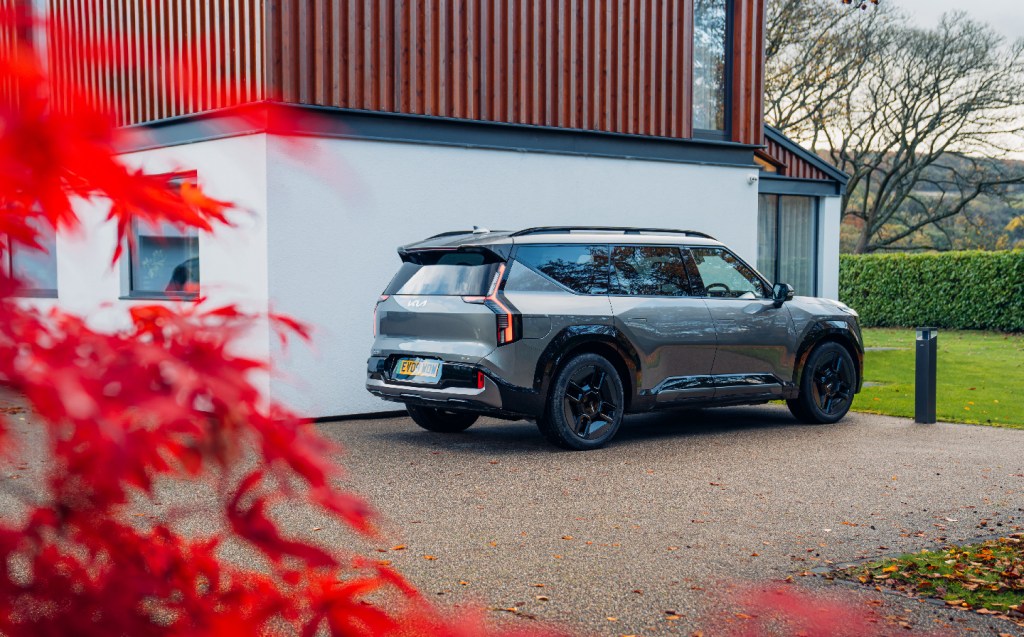
A whopping underfloor battery pack with a capacity of 99.8kWh enables owners to travel up to 349 miles between charges (319 miles for the 4×4 versions), and a state-of-the-art 800v drive system allows ultra-rapid recharging from 10 to 80 per cent in as little as 24 minutes. We’ve come a long way in just over a decade.
If you’re wondering if the EV9 replaces Kia’s other seven-seater, the Sorento, then no. Not in the short term, at least. The Sorento comes as a hybrid or plug-in hybrid, but not fully electric, so the EV9 is new territory for the brand… and the market more generally.
Of course, the eco-credentials of such a hulking beast rightly come under scrutiny — we can debate the environmental impact of building lithium ion battery packs until the cows come home, though even today EVs have been found to be cleaner than petrol and diesel equivalents over their lifetime. They are getting more environmentally friendly, too, and Kia sources the EV9’s batteries from a Korean supplier rather than a Chinese one, which eases at least some concern over the potential of forced labour and unethical supply chains.
Kia wants us not to focus too much on all that, though, and instead take a look at the eco-credentials inside the car. Earlier this year, the carmaker announced “10 must-have sustainability items” for its future vehicles, and the EV9 is the first off the blocks to feature them as standard. I won’t list them all but, for example, the dashboard and interior trim use bioplastic, made from vegetable oils, corn extract, sugar cane and sawdust, while the seats, headliner, sun visors and headrests are made from recycled plastics and yarn.
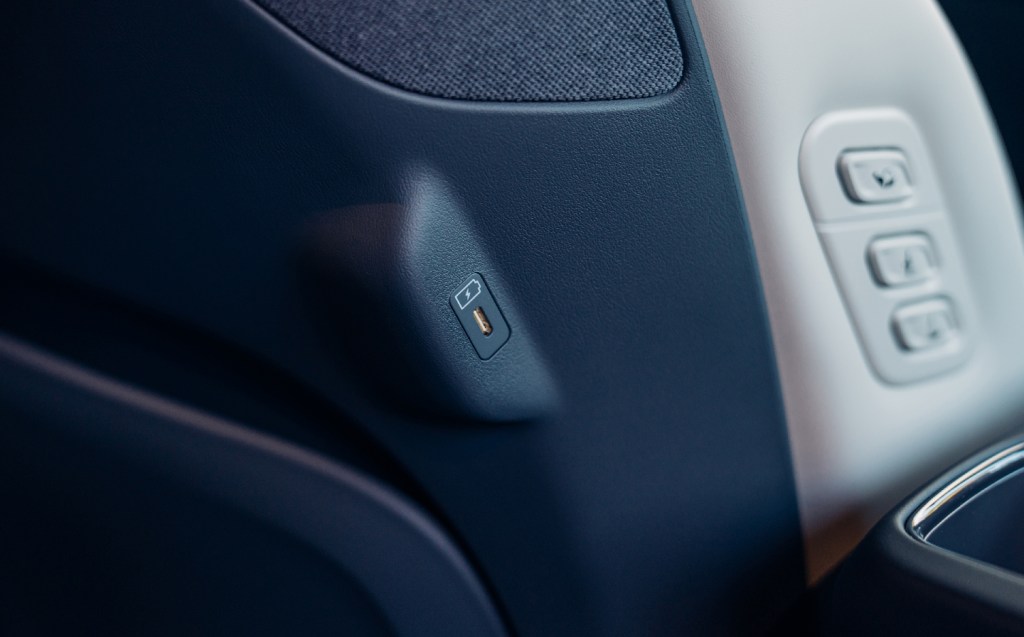
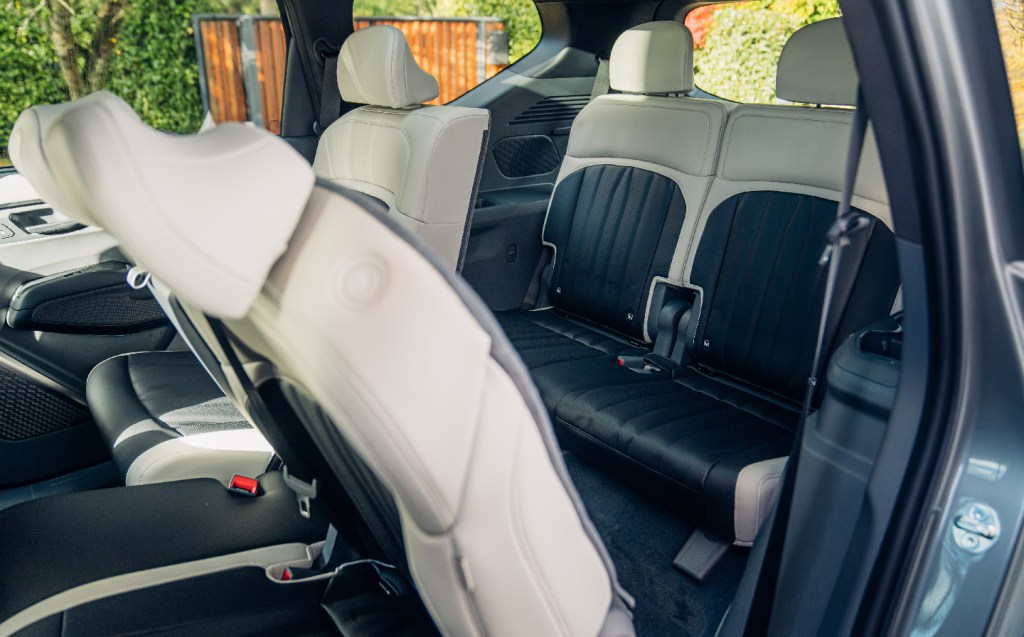
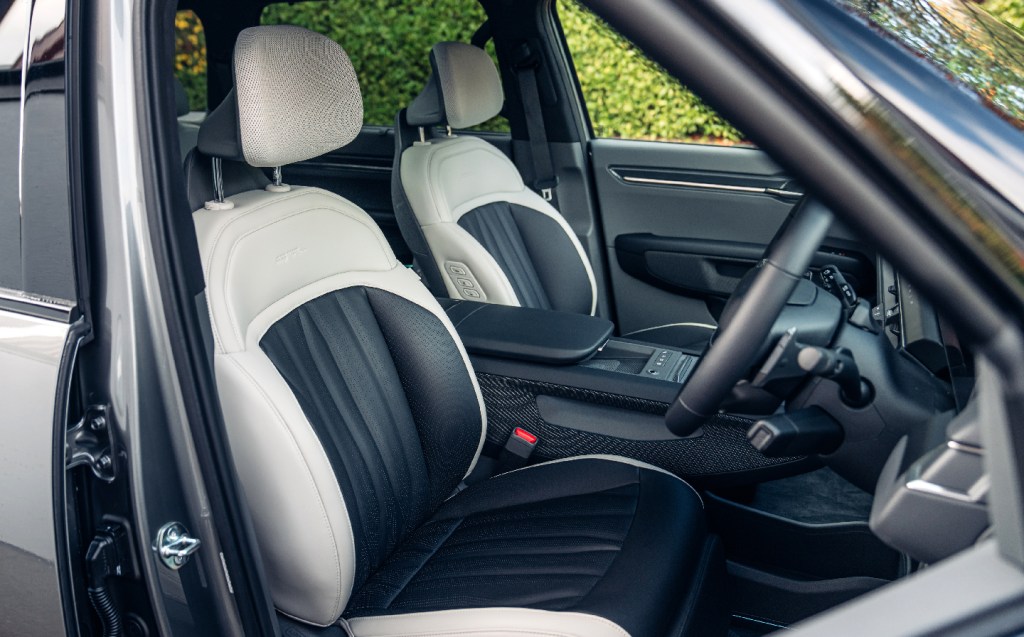
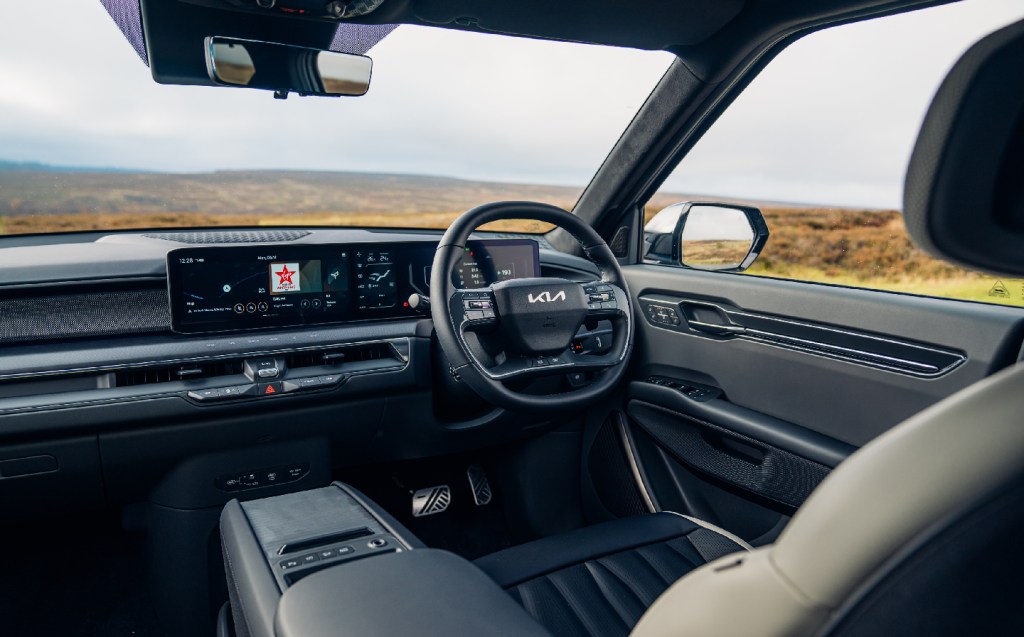
That’s fabulous, of course, but importantly the cabin looks and feels superb. Kia’s become a master at granite-level solidity of materials, and the EV9 is no exception — everything feels bolted down beautifully, and waste plastics have never felt so sumptuous. Special shout out to the front headrests, which are springy and plush; a joy to rest your cranium against, which is something I never thought I’d mention in a car review.
The seats themselves are similarly comfortable, and the driving position easily adjusted (electrically, of course) for people of all sizes. All versions exception the entry-level Air also get heated and cooled front seats with massage function, and the passenger even gets an extendable footrest. In short, this is a car in which those in the front can spend hours without a hint of discomfort.
It’s not much worse in the back, with the seven-seat second row roomy and comfortable, and those in the rear also get their own climate controls and USB-C ports, for keeping devices topped up on long journeys. The third row is tighter, of course, though unlike with a Land Rover Discovery Sport, all but the tallest adults will be able to fit in the very back pews without grumbling.
There’s an important other configuration to mention at this point: a six-seat version, available in the top “GT-Line S” specification only, which does away with the second row bench and replaces it with two individual captain’s chairs. These can be swivelled to face the rear when the car is parked, creating a lounge-style layout, or 90 degrees towards the doors to make it easier for those with reduced mobility to climb in and out.
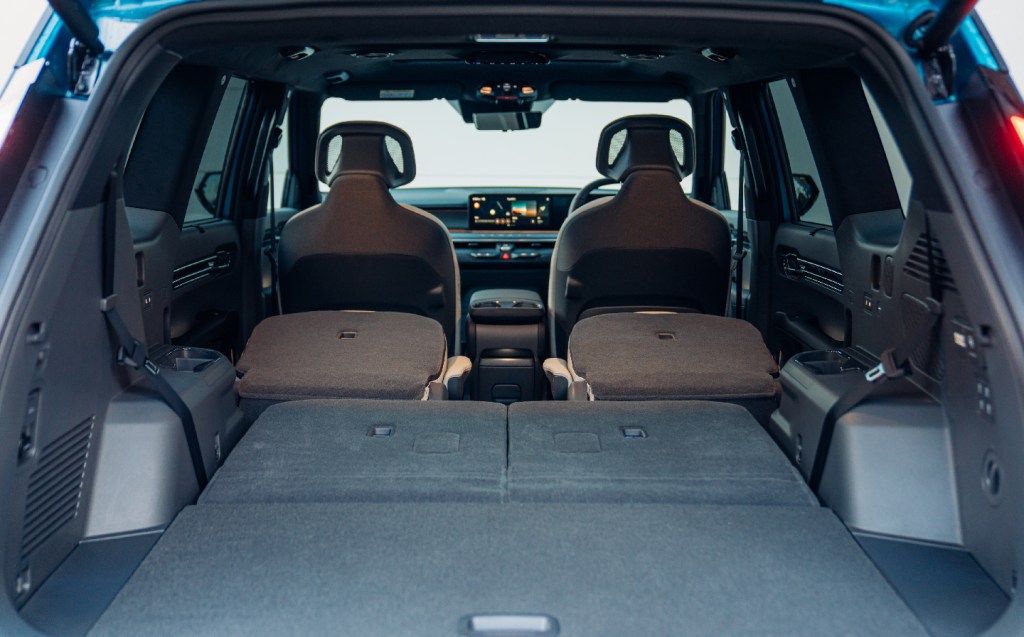
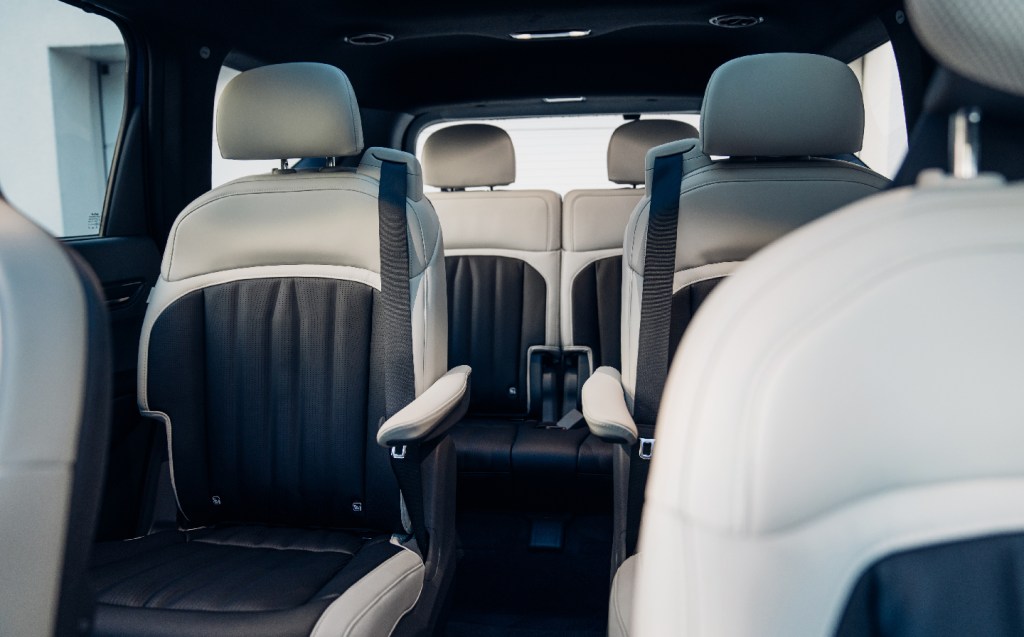
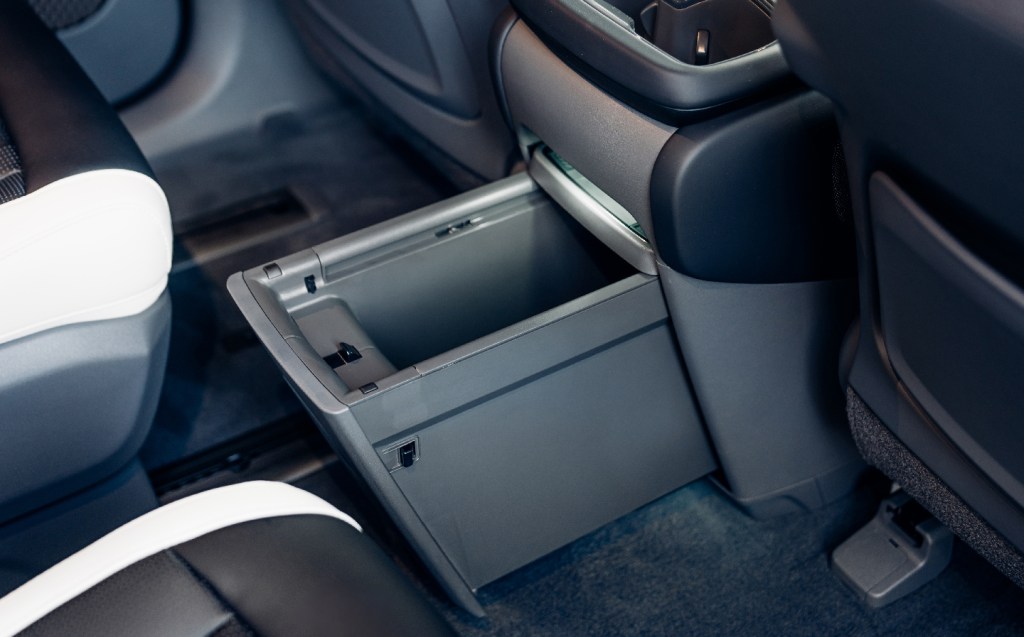
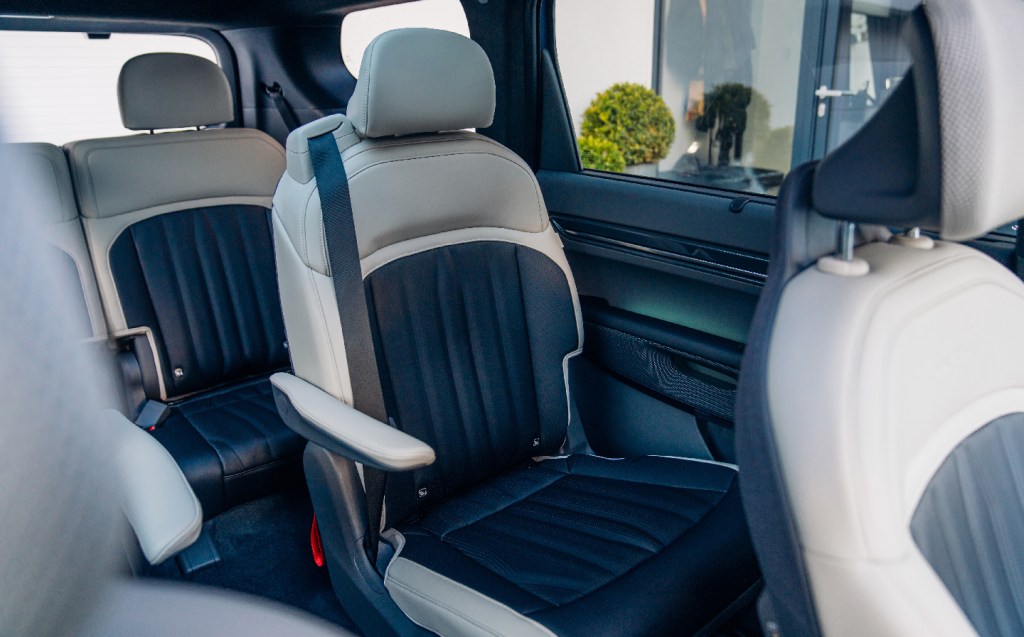
The boot? Not bad, even with a full load of humans onboard. With the third row seats up you can fit 333 litres of luggage in there, which is more than you’d be able to pack into a Ford Fiesta. There’s an additional 52-litre space under the bonnet for charging cables, too.
Perhaps the most surprising revelations come while on the move.
There’s no hiding the fact that this is a big, heavy car, but manoeuvring at low speed is made easy thanks to all-round cameras and a 3D animation of the car on the 12.3in touchscreen that you can move around with the swipe of a finger, like having your own personal drone outside the car. We first saw this on the new Land Rover Defender and it’s an impressive bit of tech.
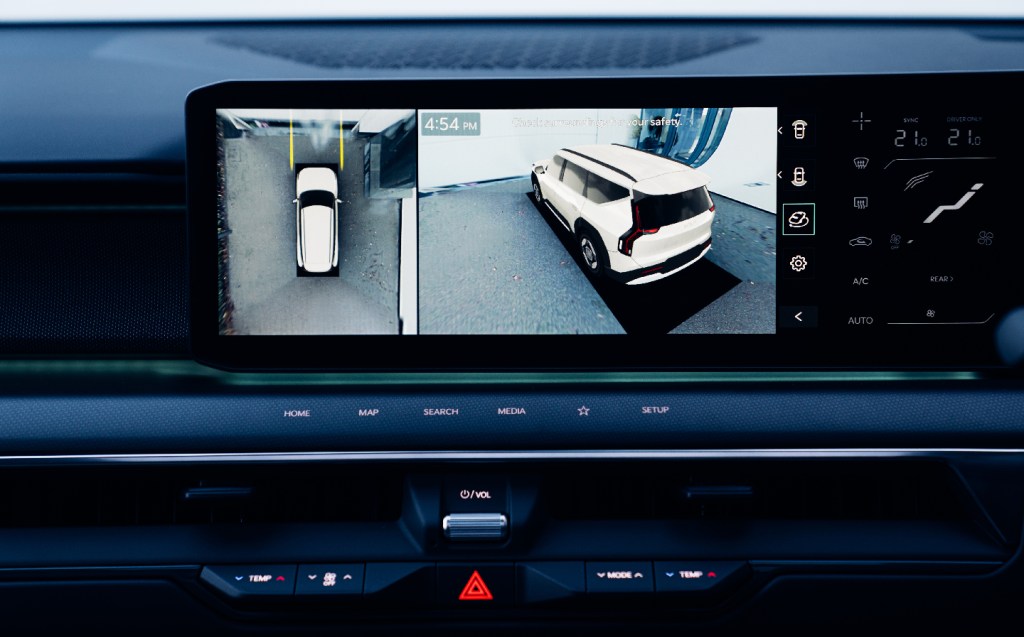
Out on the open road, it’s a car that defies physics and belies its bulk in a Tesla Model X-type way, at least in the all-wheel-drive dual-motor version that we drove (the Air version alone comes with a single motor, driving the rear wheels). Put your foot down in Sport mode and you’ll hit 62mph from standstill in 5.3 seconds, which is a shade quicker than an entry-level Porsche Cayenne. It means the EV9 can make short work of overtakes.
It goes round corners, too. Alarmingly well. Yes, there’s some roll though not nearly as much as you’d expect, and while it most definitely feels weighty the EV9 clings onto the road with all the passion of a cat to its carrier at the vet. The steering feels nicely weighted, too, and Kia has even thought of stability when the weather kicks up, with a crosswind stability system that brakes individual wheels to help keep the car pointing straight.
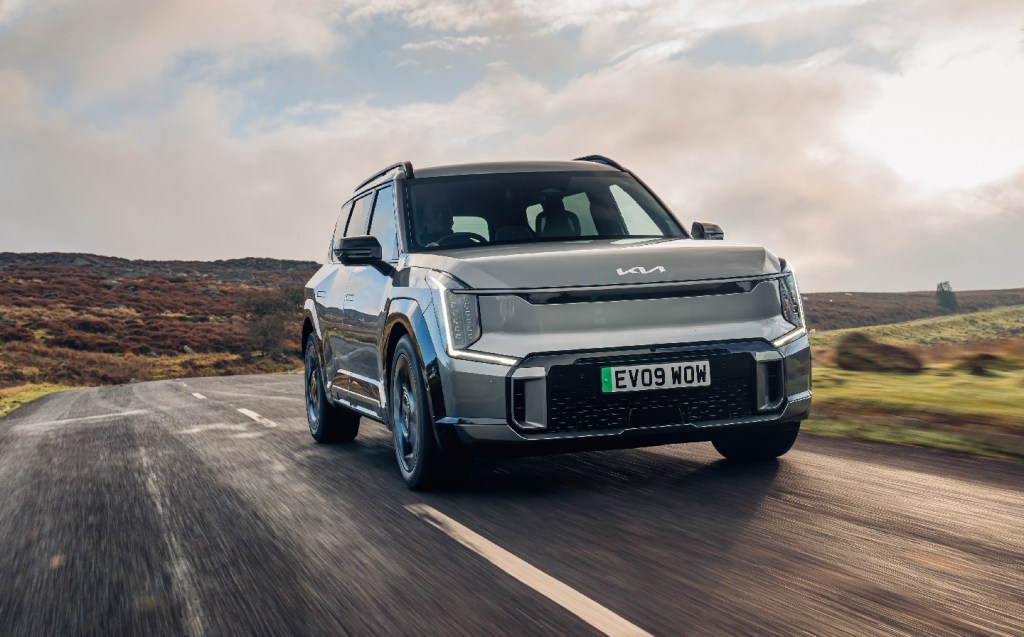
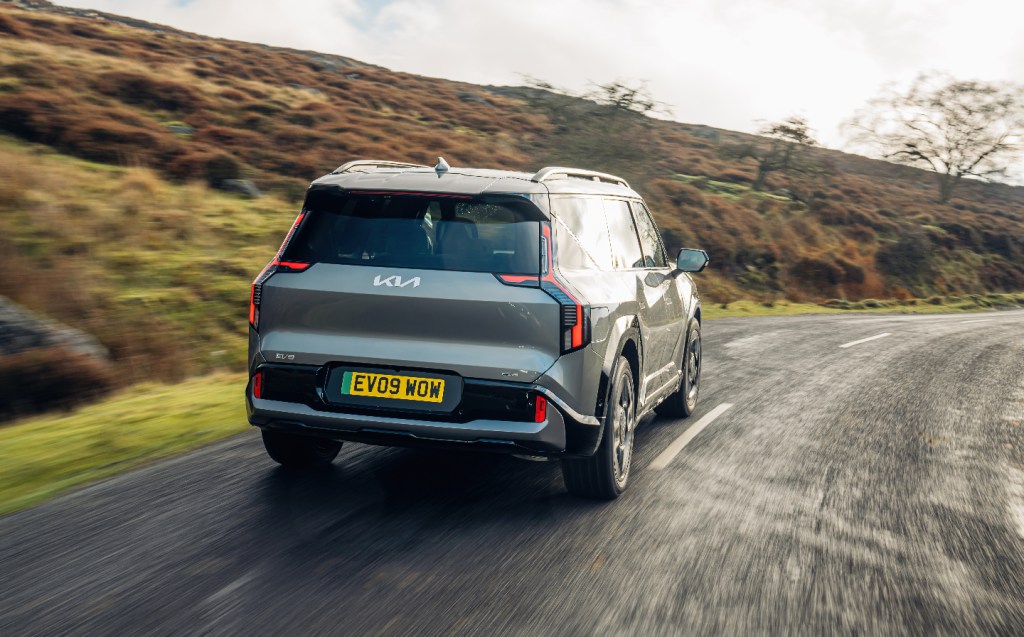
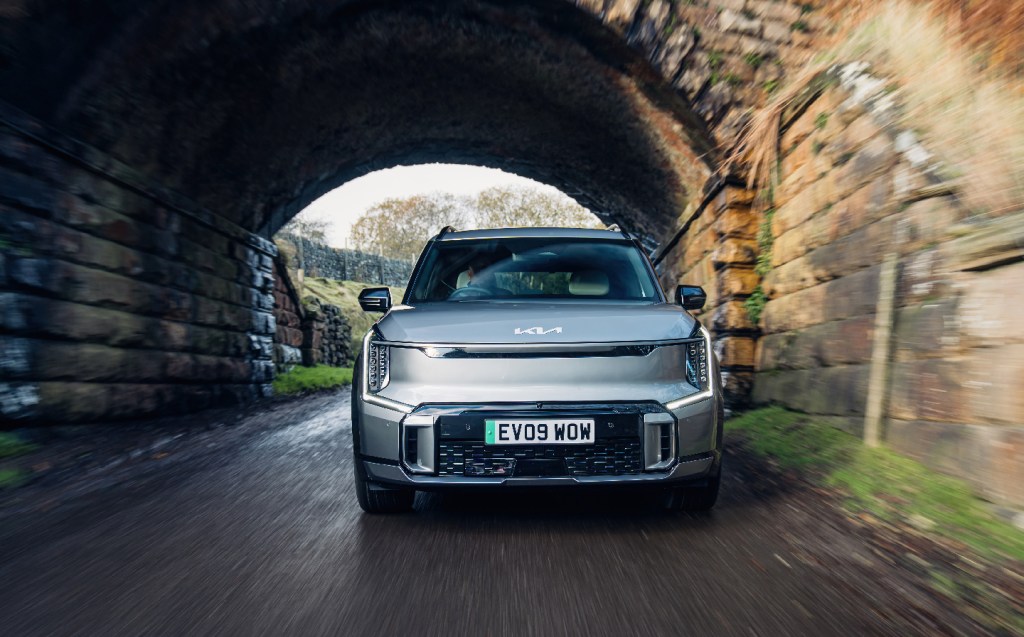
Problems? There aren’t many but two irritations will get on many people’s wick: the speed sign alert, which bongs every time you venture over the speed limit, and the lane-keeping assist, which tugs at the wheel any time you approach the outside line of your lane (anyone who lives outside a city will know how irritating that can be on country roads).
Both are features that the EU wants all carmakers to fit if it wants to get a five-star Euro NCAP safety rating (which the EV9 has achieved), so it’s not really Kia’s fault, and it’s easy to switch off the latter by holding down a button on the steering wheel – it’s a journey into the menu system to turn off the speed alerts. You’ll have to do both before setting off every time, as the car resets when powered down.
After that, though, I’m struggling, I really am. I should say that we saw just over two miles per kWh during our drive of the dual motor GT-Line S in Scotland, which would translate to around 200 miles of range in the real world, though it was a spirited test on a lot of national speed limit roads, with temperatures around the 3 degree C mark. More careful deployment of the right foot in warmer weather would improve efficiency, though getting over 300 miles out of the dual motor models is questionable.
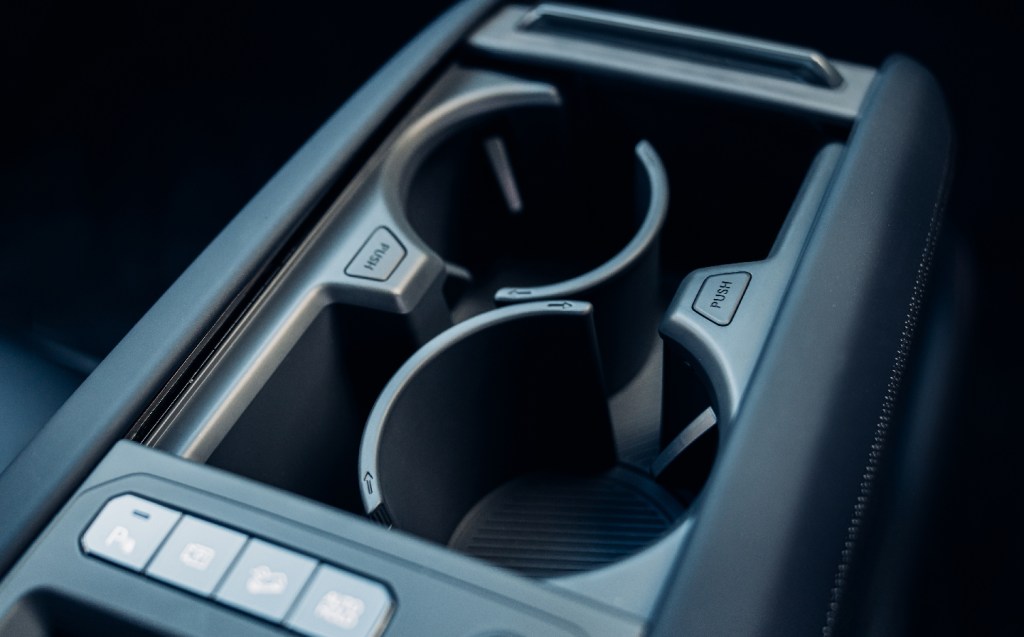
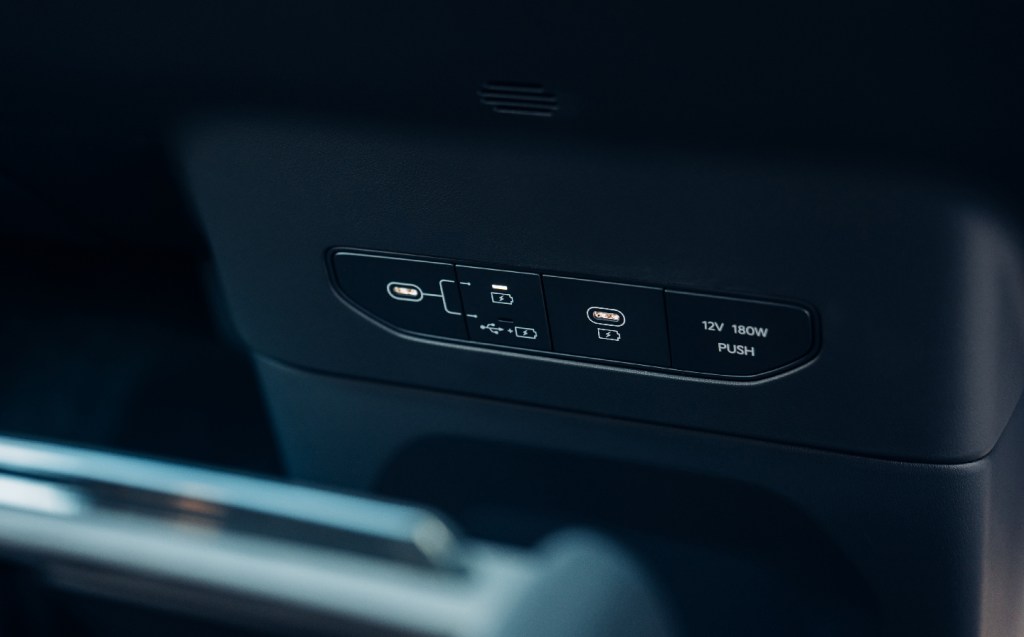
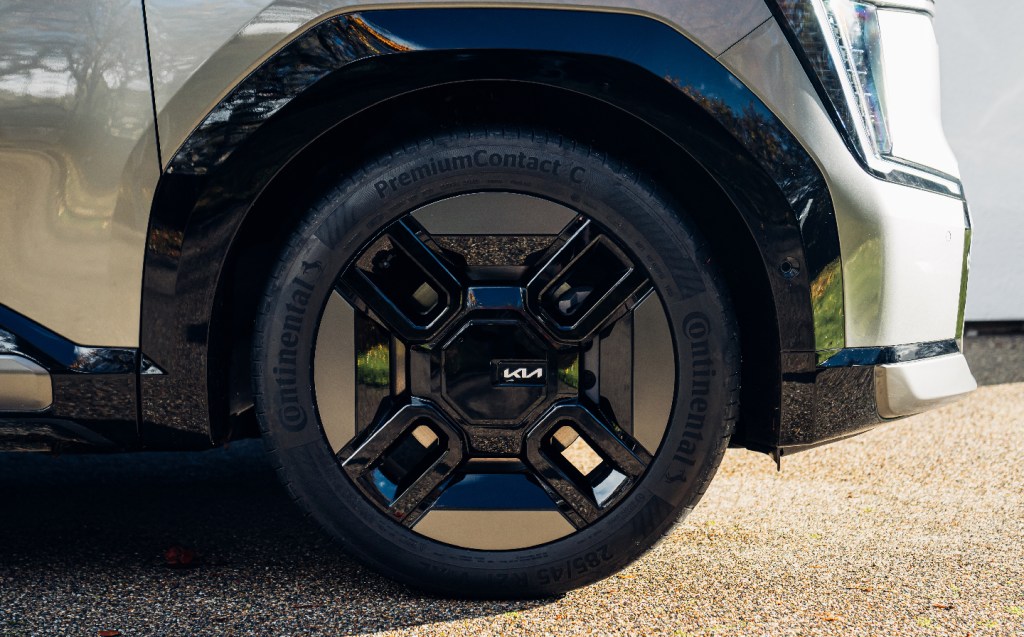
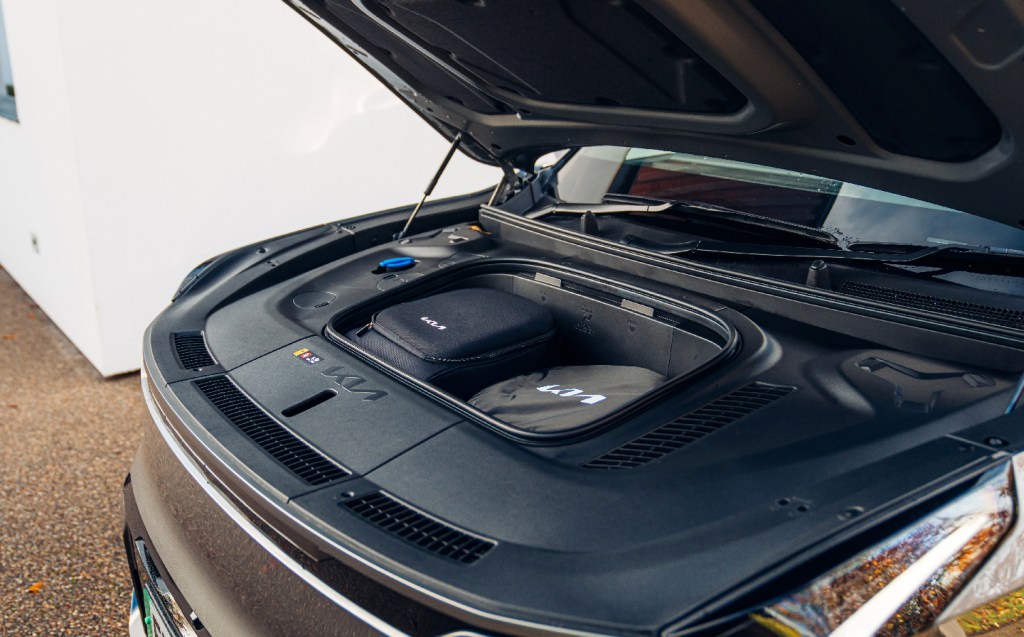
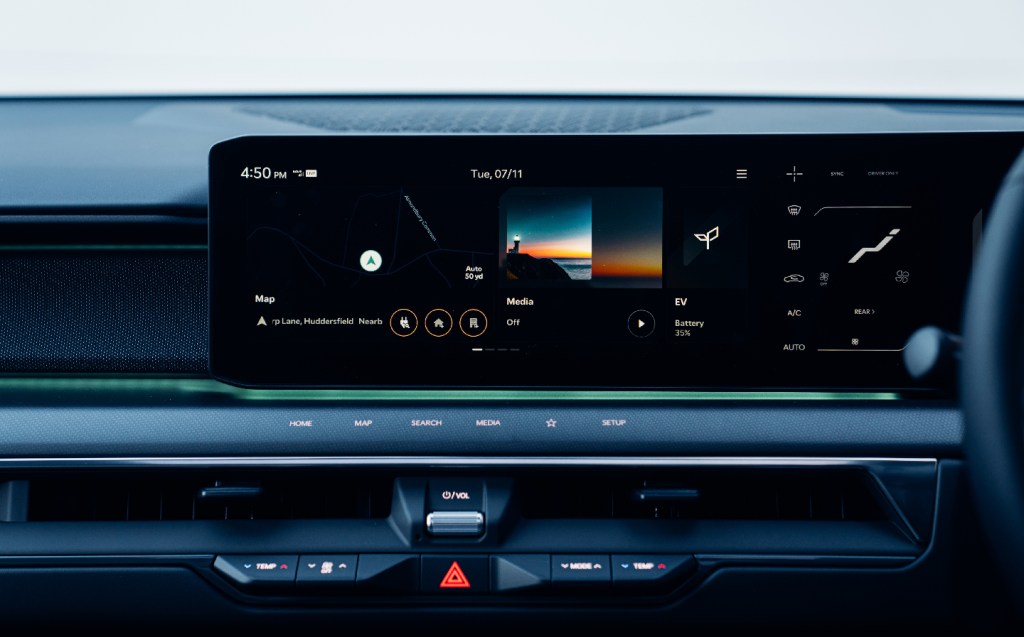
Maybe the EV9 is crap off-road but I couldn’t tell you as our test route didn’t involve mud, sand or snow. I doubt it’ll be anything anywhere near as good as a Land Rover Defender or even Discovery, but I’d imagine the all-wheel-drive models will be pretty handy in most situations owners are likely to show it, and equal to the rivals above.
It’s also worth noting that the dual motor EV9s can tow up to 2.5 tonnes (braked), which is class-leading… though what that does to the range of the battery I can only imagine.
Even the EV9’s price, which starts at £64,995 for the Air and rises to upwards of £73,245 if you want the dual motor versions, can’t really be grumbled at given the size and class of this car. Volvo’s rival EX90 costs upwards of £96,255, and the Tesla Model X (now only in left-hand drive and with five seats) is similar money to the Swedish effort.
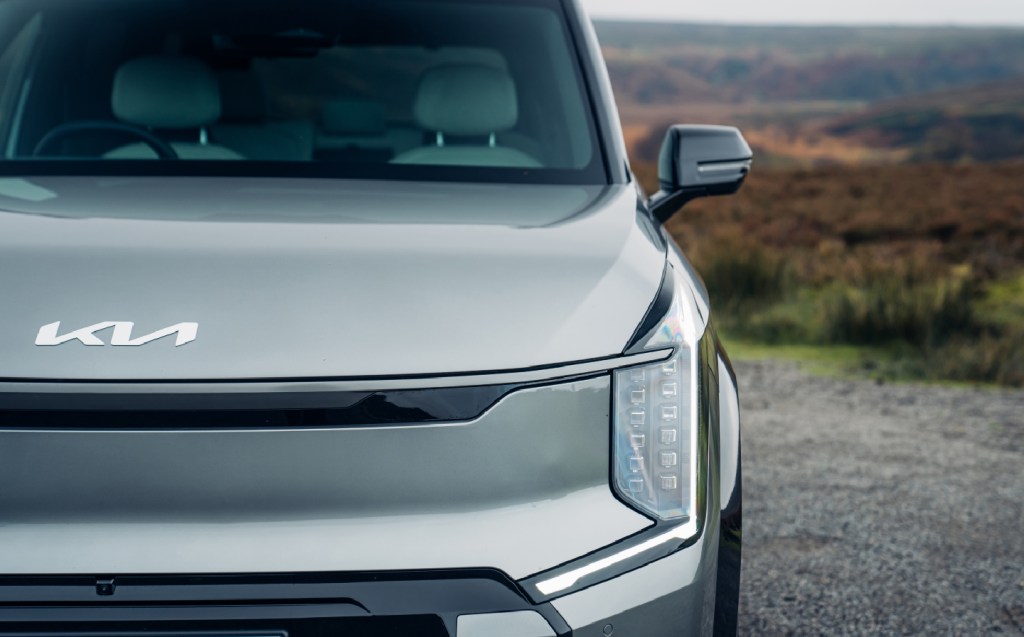
I was interested to hear from a Kia spokesperson over dinner that around 70 per cent of pre-orders were for the range-topping GT-Line S model, and that the majority of those who expressed an interest in the EV9 online are current Land Rover Discovery owners, suggesting Kia will benefit from premium car buyers switching brands. A seven-year warranty may seal the deal, and Volvo will be hoping their customers don’t have their heads turned too much.
In short, the Kia EV9 is a car that I couldn’t even conceive of just over a decade ago and breaks new ground for the car market. One that adds to a tiny but important and growing niche of large, seven-seat SUVs. One that is fun to drive, full of tech and reassuringly safe. And one so polished that it will be keeping CEOs of more luxurious brands up at night.
Will has quit Twitter/X… follow him on Bluesky instead
Related articles
- If you were interested in this review of the Kia EV9 electric seven-seater, you might like to read about Skoda’s forthcoming seven-seat electric SUV
- Here’s a recent look at some of the best seven-seat cars on sale
- Nissan X-Trail 2022 review: Electrified seven-seat family SUV now has the X factor
Latest articles
- Bedeo Defender 110 2024 review: Does electric Landie with in-wheel motors make for a perfect off-roader?
- F1 2024 calendar and race reports: What time the next grand prix starts and what happened in the previous rounds
- BYD Seal U 2024 review: Chinese brand adds plug-in hybrid SUV to its electrified line-up
- New Mini John Cooper Works revs up for Nürburgring 24-hour race debut
- Ineos Grenadier Quartermaster 2024 review: British pick-up is a tough mudder but too flawed to be a real workhorse
- Mini Cooper SE 2024 review: All-new electric hatchback is playing to the crowd
- Jeep Wrangler 2024 review: Impressive off road but you’d still have to be a committed contrarian to buy one
- Around 500 Ford workers in UK could go on strike over cost-of-living pay dispute
- Durham solar car team to take part in 24-hour race with smart tyres and night-driving solution


